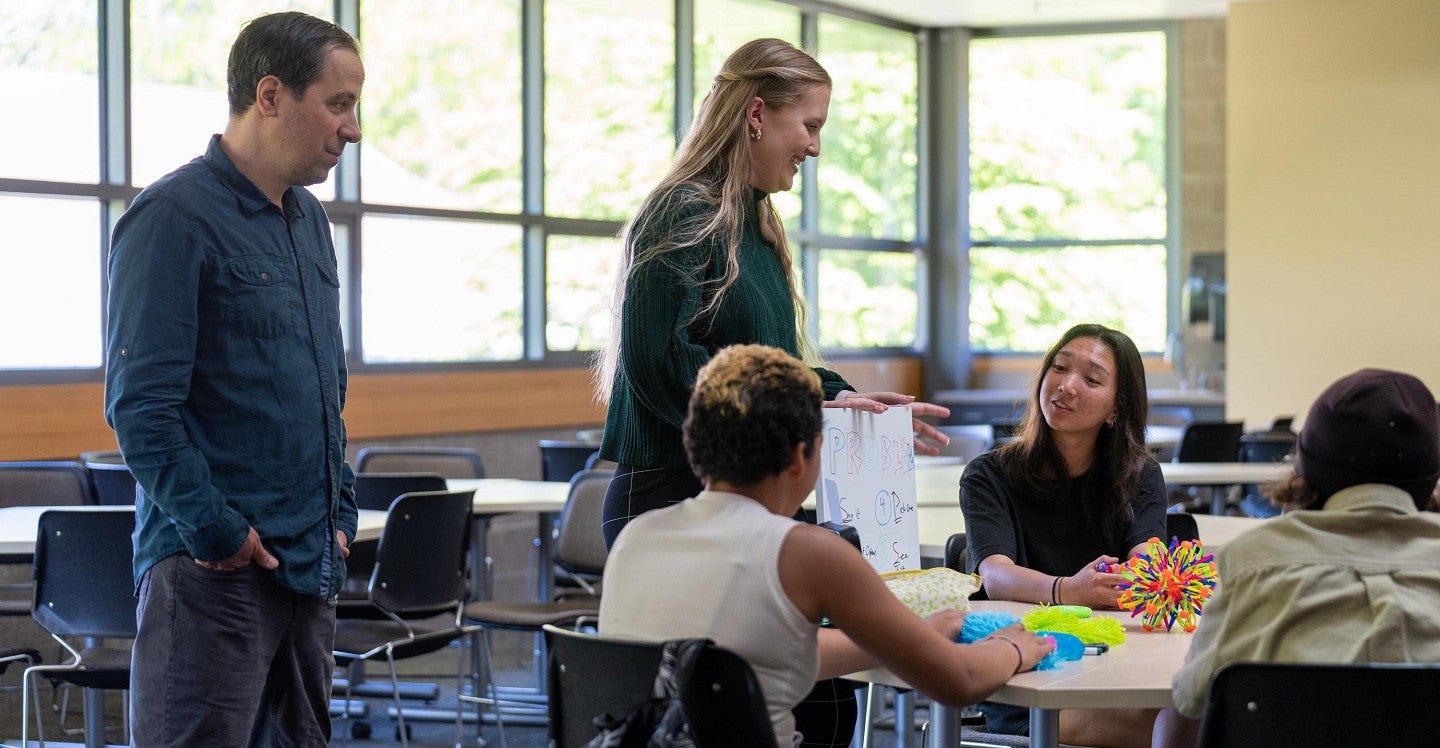
The Ballmer Institute welcomes first group of child behavioral health undergrads to UO Portland campus
They will be first in the nation to earn bachelor’s degrees in child behavioral health
A groundbreaking group of University of Oregon undergraduates are set to begin a brand-new training program on a brand-new campus with the goal of practicing a brand-new profession.
The students, who are training to become the country’s first child behavioral health specialists, will start classes Sept. 30 at the Ballmer Institute for Children’s Behavioral Health at the UO Portland campus in the Concordia neighborhood of northeast Portland.
Over the next two years — the second half of their four-year program — the undergraduates will learn specialized skills to support children’s well-being at a time of rising need, helping to ease the shortage of trained behavioral health professionals.
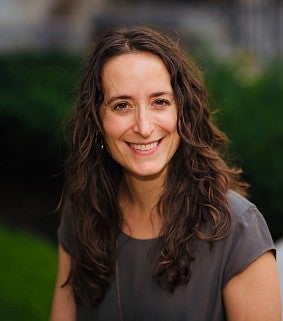
It is the culmination of years of creative, collaborative work by many across the university to assemble faculty, develop curriculum, acquire and upgrade facilities, and build relationships with community partners, including the Portland-area schools where the undergraduates will gain practice and experience.
“We’re all incredibly excited to welcome these trailblazing students to the UO Portland campus,” said Katie McLaughlin, executive director of the Ballmer Institute. “We’ve all been waiting for this moment when we get to begin delivering the program that so many people have worked so hard to create.”
Founded in March 2022, the Ballmer Institute is the first training program of its kind in the United States and is poised to become a national model. It was launched with a transformational lead gift of $425 million from Connie and Steve Ballmer of Ballmer Group Philanthropy.
Typically, becoming a licensed therapist or counselor requires years of graduate study. The Ballmer Institute’s model will enable graduates with a specialized undergraduate degree to provide certain types of behavioral health services in schools and other community settings, allowing for rapid expansion of this critical yet understaffed workforce.
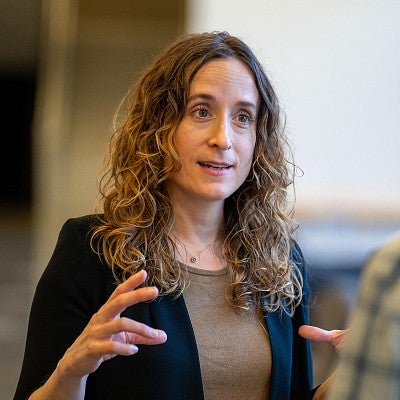
“We’re all incredibly excited to welcome these trailblazing students to the UO Portland campus. We’ve all been waiting for this moment when we get to begin delivering the program that so many people have worked so hard to create.”
Rising demand for children’s support services
The need for children’s behavioral health services has risen dramatically in Oregon and at schools throughout the country, McLaughlin said.
“What we’re hearing across the board is that there are simply not enough trained psychologists, counselors and social workers in schools to meet the demand for services,” she said. “Many kids who are identified as potentially needing support don’t often get the support that might be most helpful to them because there aren’t enough trained professionals in the school to do it. What ends up happening is much of that burden falls on teachers, who report seeing enormous increases in behavioral health needs in the classroom.”
Deep thought and planning went into defining the new profession, its scope of practice and how it can add value to the existing behavioral health services system, supporting the needs of youth in a culturally responsive way.
That high level of care is reflected in the curriculum, course sequence and on-site training. The program is intentionally designed to first provide undergraduates with skills and then the opportunity to practice those skills before they’re asked to apply them in a school or other community setting, said Kalani Makanui, a psychologist and assistant clinical professor with the Ballmer Institute.
Over two years, the undergraduates will complete 700 hours of supervised practice in the schools, pediatric clinics and other community organizations.
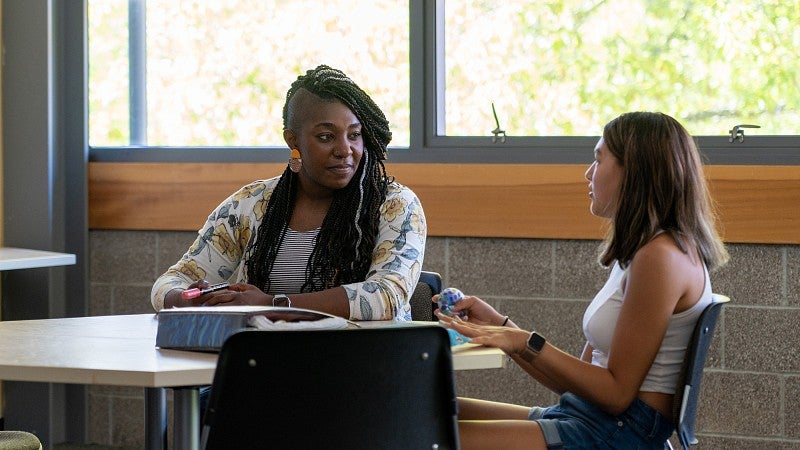
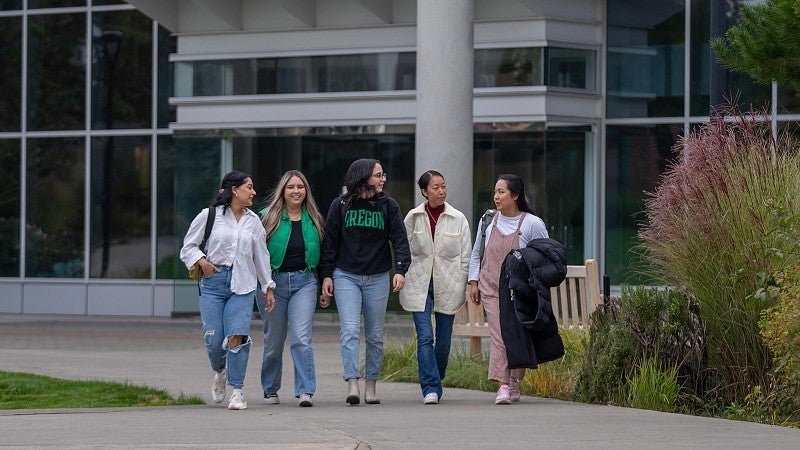
In fall term, students will take four courses: Foundations in Child Behavioral Health Skills; Foundations in Culturally Responsive Practice; Ethics and Professional Practice; and the first in a series of classes titled Child Behavioral Health Promotion.
This is no off-the-shelf curriculum. Faculty members with the UO’s College of Education, the psychology department in the College of Arts and Sciences, and the Ballmer Institute developed more than 20 courses intended to link classroom studies with hands-on learning and eventual employment requirements.
A focus on prevention
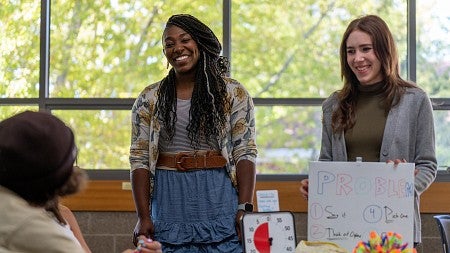
“An important piece that sets it apart is the emphasis on early identification of kids needing support and behavioral health promotion and prevention,” said Maureen Zalewski, the Ballmer Institute’s director of child behavioral health training.
Promotion refers to teaching skills that can help all kids. One example would be a presentation to an entire class on how to manage stress more effectively.
Prevention refers to more targeted services, like teaching problem-solving skills to kids who are identified through a screening process or are showing early signs of behavioral health concerns.
In winter term, child behavioral health undergraduates will take three courses and gain experience in one of five Portland-area schools. Over two years, the undergraduates will complete 700 hours of supervised practice in the schools, pediatric clinics and other community organizations.
Forging a partnership with schools
To ensure that the presence of the child behavioral health undergraduates and their faculty supervisors is responsive to the schools’ needs, Makanui and three other Ballmer Institute clinical faculty members have each been serving in a Portland-area school for the past year.
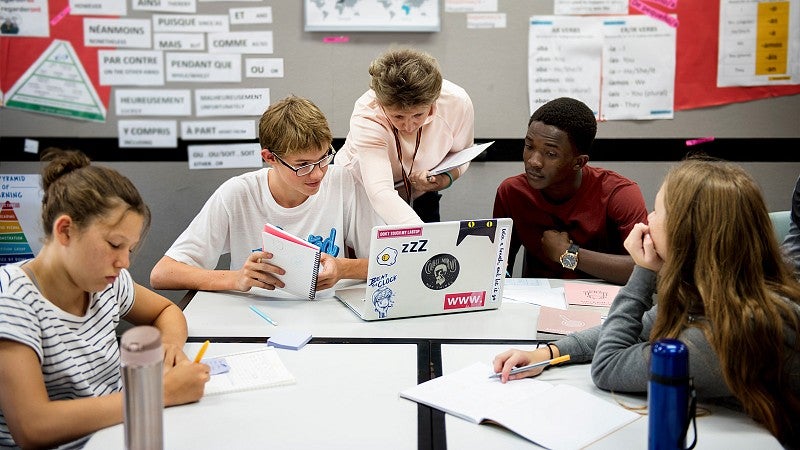
Makanui notes that at his middle school, in addition to the usual challenges of youth navigating social dynamics and grappling with physical and developmental changes, many students have unaddressed needs carried over from the COVID-19 pandemic.
“They missed an important social period of learning,” Makanui said. “Classrooms are expected to be back to business as usual, but students are having trouble focusing, trouble concentrating, and many are struggling with behavioral health concerns.”
One thing Makanui has learned that he plans to share with the undergraduates he supervises is to get immersed in the school’s culture and community.
“That means going to student meetings, student talent shows, baseball games and graduations,” he said. “That’s how you build trust with the school and really become a full-fledged member of the school community in which you’re placed.”
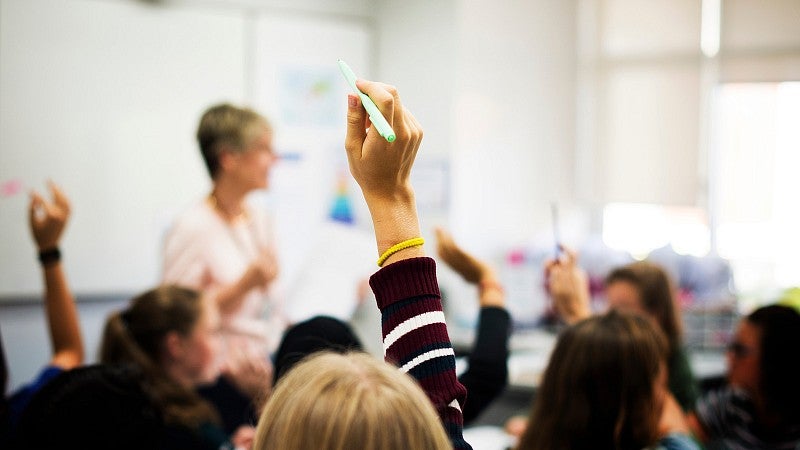
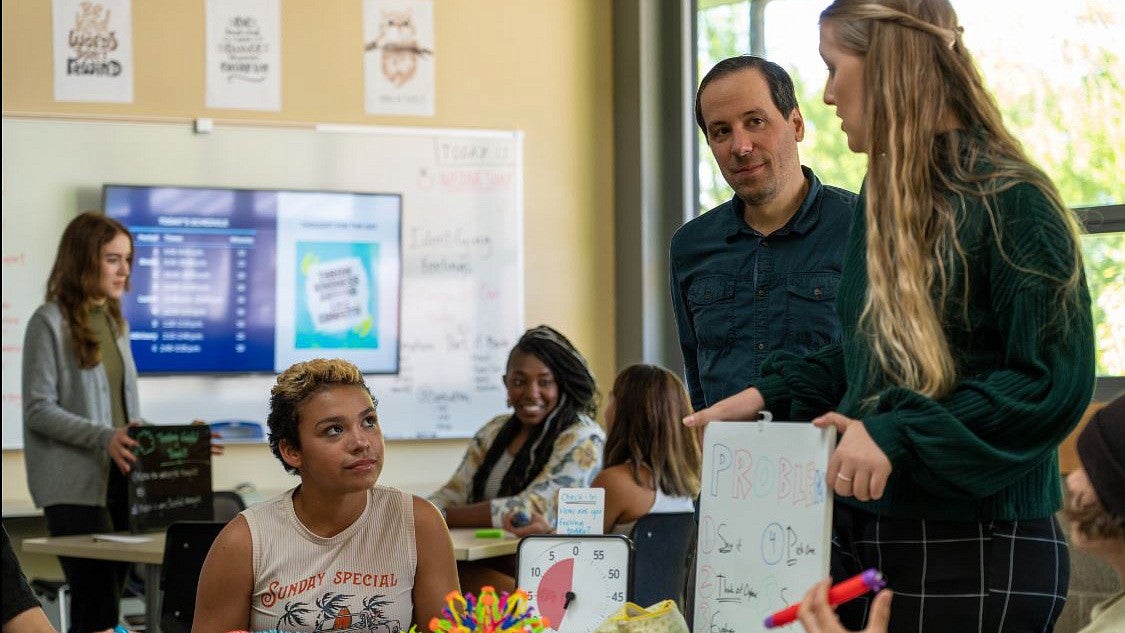
The schools welcome the Ballmer Institute’s preventive approach and the opportunity to collaborate.
“We believe in what they’re doing,” said Trevor Greer, principal of Harriet Tubman Middle School in northeast Portland, one of the sites where UO undergraduates will gain clinical experience. “We are looking forward to that additional support and being able to wrap it around our kids, as well as helping in the training of future behavioral health professionals.”
The child behavioral health undergraduates also are looking forward to learning and serving in the schools.
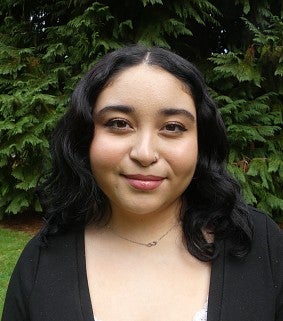
Photo credit: Bella Hernandez
Bella Hernandez, a junior from Los Angeles and aspiring child psychologist, is among the first group of 19 undergraduates.
“When I found out about the Ballmer Institute, I just had that light bulb moment that this is what I want to do,” she said.
Like most of her classmates, she completed two years of core education requirements at the UO Eugene campus before moving to Portland for more specialized training.
“I’m excited to have hands-on experience that’s usually only available in graduate programs and to actually see the difference I can make,” Hernandez said. “The mental health stigma is slowly being broken, but I think it’s really important, especially in the age of the internet and so many other challenges, that we can be there for the younger generation and just help pave the way for them.”
UO in Portland
The University of Oregon will mark a milestone in its more than 100-year history in the Rose City with the September opening of its new campus in the Concordia neighborhood of northeast Portland.
Numerous UO programs will be based at the new campus: seven UO research centers and 12 graduate and upper-level undergraduate academic programs, including the first group of undergraduates at the Ballmer Institute for Children’s Behavioral Health.

“With this campus, we now have housing for students, recreation spaces and newly renovated buildings with state-of-the art maker spaces and classrooms,” said Jane Gordon, vice president for Portland. “The opportunities for collaboration, research, and community and professional partnerships are limitless.”
The campus is also home to a library that is open to the public, event spaces, and a range of student support services.
The Ballmer Institute for Children’s Behavioral Health
March 1, 2022, with a transformational lead gift of $425 million from Connie and Steve Ballmer of Ballmer Group Philanthropy.
Five tenure-track faculty members, from the University of Oregon College of Education and the psychology department in the College of Arts and Sciences, who teach and conduct research; five clinical faculty members who teach and supervise students’ practice in the schools and community; plus many other affiliated UO College of Education and psychology faculty members.
The nation’s first and only bachelor’s degree program in child behavioral health. A 2+2 program, with the first two years of pre-major courses at the UO Eugene campus or a community college, and the final two years of specialized coursework on the UO Portland campus and 700 hours of supervised practice in the Portland community.
Now in its third year, this online program has trained more than 150 teachers from more than 70 schools in Oregon and Washington in evidence-based behavioral health practices to support their students’ health and wellness.

